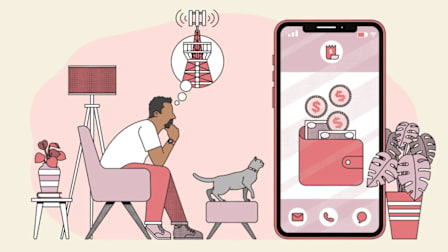How to Avoid High Car Buying Fees
Keep a careful eye on the details and paperwork to prevent paying more than you should for a new car

Purchasing a new car is stressful enough, so it helps to go into a showroom knowing which charges are unavoidable, which ones can be negotiated, and which ones you can skip altogether.
Legitimate Costs
Documentation or Conveyance Charges
Though it’s reasonable for you to cover the cost of your title and registration (usually 1 to 3 percent of the vehicle’s cost), dealers often charge extra—sometimes hundreds more—for processing them and other documents.
The fix: You might not be able to avoid this fee entirely, but you can try for a discount or ask for something in return, such as dealer-installed accessories like winter floor mats.
Registration Charges
You have to register your car in order to drive it, no matter where you live. While you can take care of registering your new vehicle on your own, it’s more convenient to have the dealer do it for you. But this creates an opportunity for the dealer to pad the bill a bit.
The fix: Before going to the dealer to finalize the deal, check the Department of Motor Vehicles website in your state to find out the costs associated with registering a new car. Then have the salesperson or the business manager who’s handling the paperwork itemize all the registration costs, and make sure they’re the same as what you found online.
The dealer may add a fee for the convenience of doing this work for you, and you’ll have to decide whether you want to contest it or if it’s worth paying.
Sales Tax
Almost every state requires you to pay sales tax on a new vehicle. So unless you’re in one of those few that don’t charge it, you will have to pay up when buying.
The fix: In some states, you can deduct the value of your trade-in vehicle from the purchase price, which will lower the tax you end up paying. Applying available rebates and incentives can also do this. Research in advance whether your state applies sales tax to the net cost (post-trade-in or post-incentives) or the gross cost (the negotiated price of the car).
Fees You Should Contest
Advertising Fee
Dealers sometimes add an extra few hundred dollars to recoup the cost of national and regional advertising campaigns.
The fix: If the dealer says he’ll sell a car at the invoice price but you have to pay an advertising fee, just say no. The cost of advertising the car is baked into the sticker price.
Delivery and Preparation Fees
Dealers sometimes paste a second sticker on a car’s window next to the official one, listing charges with names like “predelivery inspection,” “dealer prep,” “vehicle prep,” or “vehicle procurement.”
The fix: Contest them all. They’re part of the mandatory destination charge—which, by the way, should also include a full tank of gas or, for EVs, a fully-charged battery.
Market Adjustment Fee
This is a tough one to avoid if you’re shopping for a hot seller because dealers may have little incentive to negotiate.
The fix: Still, it’s not a mandatory charge, so it’s worth asking for a discount, especially because the added cost isn’t just an up-front expense. Paying extra initially also usually means losing more as the car depreciates.
Loan Payment Fees
Many automakers offer loans directly to car buyers, and a third of the people in our survey who got one of those loans said they were surprised by a fee connected to it. For example, Diane Weiser of Port Lavaca, Texas, says she was shocked to find that every time she called to make a payment, she was charged a $10 customer service fee. “And that was for on-time payments, too!” she says.
The fix: Make sure you understand the payment terms before you go through an automaker’s financing arm. Check with your own bank, too, which may offer a better deal and lower fees or none at all.
Unnecessary Add-Ons
Though not technically fees, dealers often try to upsell unnecessary services or features, including these.
VIN etching: A local mechanic will charge you less for this anti-theft measure, which involves etching the vehicle identification number on the car’s glass. Or buy a do-it-yourself kit for $9 to $30.
Extended warranty: A warranty that covers repairs after the manufacturer’s warranty expires can provide peace of mind. But it can add thousands to the cost of the car. CR recommends buying a reliable vehicle and setting aside an emergency fund instead.
Disability and life insurance: Some dealers offer these and similar policies with your auto loan to help you pay for the vehicle if you’re injured or die early. But you can get less expensive coverage through your primary home, car, or life insurer.
Rustproofing, fabric protection, paint sealing, or ceramic coating: Today’s cars are built to withstand corrosive weather and road conditions, so they don’t need additional treatments, which can add hundreds to the cost of your car. The interior protection is just an expensive spray-on fabric protectant. Paint sealants are basically just wax that will wear off after a few months.
Ceramic coatings are a more useful product that requires a specific application process. The dealer usually has a vendor do the work, and they mark up the price to make a profit. It’s better to check different detailing shops in your area and compare price quotes for the service after you take delivery of the vehicle.
Editor’s Note: This article has been updated since it originally appeared in the July 2019 issue of Consumer Reports magazine.




